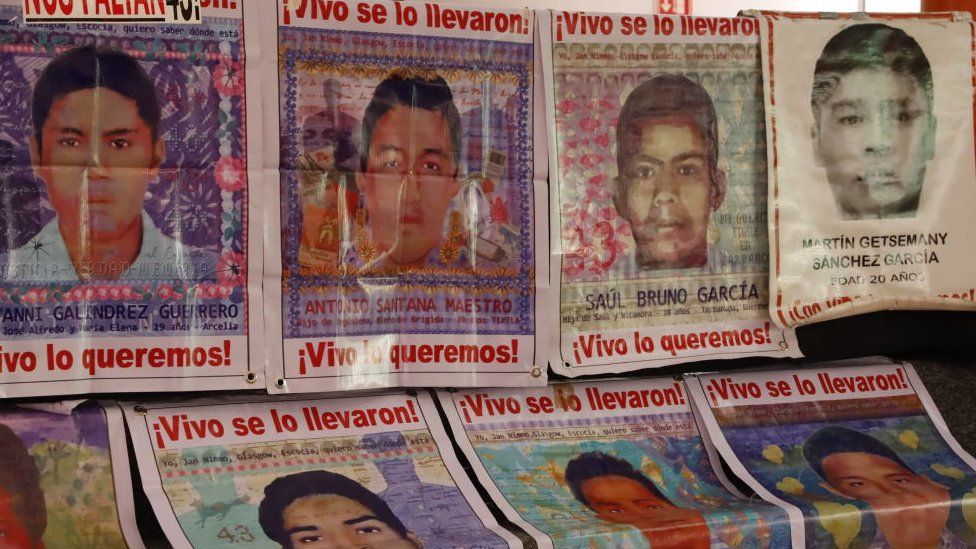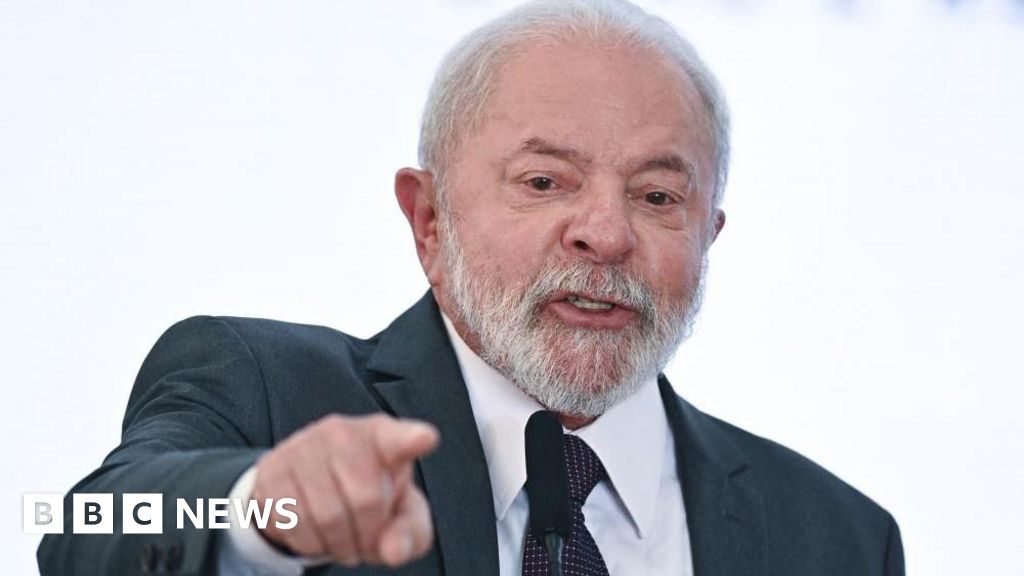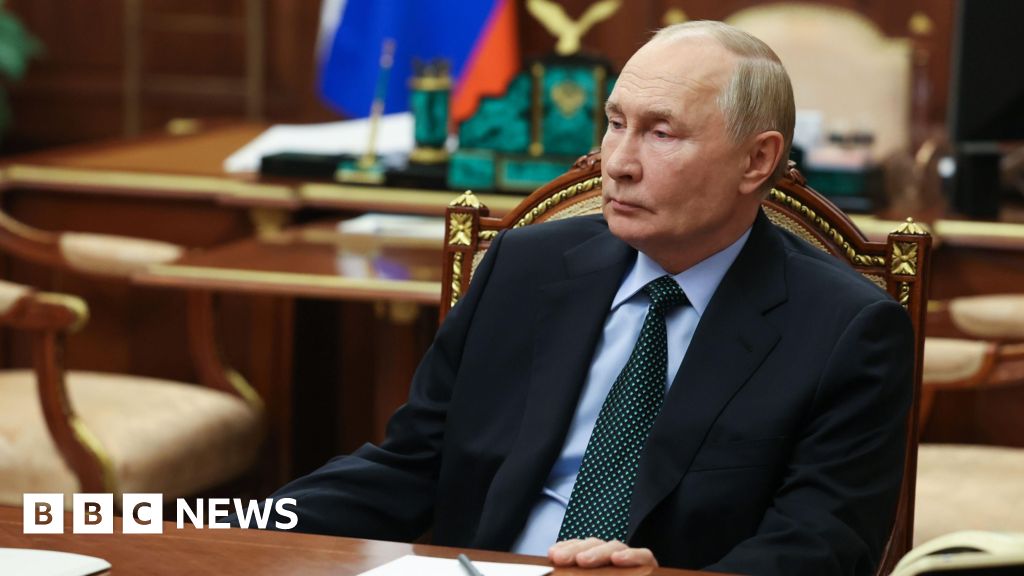ARTICLE AD BOX
By Bernd Debusmann Jr
BBC News
 Image source, Getty Images
Image source, Getty Images
The case of the 43 missing students shook Mexico
The disappearance of 43 Mexican students on 26 September 2014 shook Mexican society, exposing the depths of government corruption and highlighting spiralling violence that had already left thousands dead. Eight years on, what really happened is still unknown.
About a half hour's drive from the small, sleepy Mexican town of Cocula, a trash-covered, fetid rubbish dump in the hills was once said to be the final resting place of 43 Mexican students who vanished as they were traveling together on their way back from a protest.
It was there, amid piles of discarded plastics and everyday detritus, that Mexican authorities claimed that members of Guerreros Unidos - or "United Warriors" - killed and burned the students, all from the Ayotzinapa Rural Teachers' College, after they were kidnapped by corrupt police officers in the nearby town of Iguala and handed over to the gangsters.
By 2016, however, independent investigators had disproven the government's theory that the students were killed and burned at the dump - one of the most glaring falsehoods in a case which laid bare Mexico's twin battles against deeply entrenched corruption and rampant violence.
Eight years on, the remains of only three students have ever been identified.
Now, after years of intense public scrutiny and criticism, a truth commission set up by current president Andrés Manuel López Obrador has recast the event as a "crime of the state" and cover-up involving dozens of gang members, soldiers and local, state and federal officials that reached all the way to the highest levels of Mexico's government.
The public continues to protest the failures of two successive governments to uncover the truth of what happened.
On the eight-year anniversary of the kidnapping, some of the key players in the case have been arrested, some have disappeared and some are still searching for answers.
Jesús Murillo Karam, former attorney general
On Friday 19 August, Mexico's former top prosecutor Jesús Murillo Karam was arrested in connection with the case.
As attorney general under the government of President Enrique Peña Nieto, he opened the original investigation into the students' disappearance.
Image source, Getty Images
Image caption,Jesús Murillo Karam was the attorney general at the time of the students' disappearance
He has now been charged with forced disappearance, torture, and obstruction of justice in relation to the missing students.
Mr Peña Nieto's successor, President López Obrador, has said that Mr Murillo Karam's role in making false arrests after the disappearances was "proof" that he oversaw a vast cover-up aimed at shielding the federal government from responsibility.
Speaking in court on 24 August, Mr Murillo Karam said that while he was willing to accept some investigative errors, no one had yet been able to convincingly offer another version of what happened to the students.
He will now go on trial. While no date for the proceedings has been announced, a judge has ruled that he will remain in pre-trial detention until then.
Watch: Mexicans react to former attorney general arrest
Tomás Zerón, former head of Mexico's Criminal Investigation Agency
The former director of Mexico's now-defunct Criminal Investigation Agency, Tomás Zerón, has been accused by the López Obrador government of torturing witnesses in the case - including a member of Guerreros Unidos - to help support the government's version of the case.
He is also wanted for allegedly manipulating evidence. He has denied the charges and characterised them as politically motivated.
Image source, Getty Images
Image caption,Tomás Zerón is thought to be in Israel
In 2019, Mr Zerón reportedly fled to Canada, and in July 2021 Israeli and Mexican officials said Mr Zerón had fled to Israel and applied for asylum. Mexico has since requested his extradition, which Foreign Minister Marcelo Ebrard said was a "top priority" for the López Obrador government. Israeli officials have so far not granted the request.
According to the latest Mexican government report, government officials held a meeting with Mr Zerón in Tel Aviv in February to discuss the possibility of him returning to Mexico to answer the charges against him. He remains in Israel.
José Luis Abarca, former mayor of Iguala
The mayor of Iguala in 2014, José Luis Abarca, fled the town along with his wife María de los Angeles Pineda just days after the kidnapping. They were arrested in Mexico City more than a month later. Both are still in prison serving time for money laundering and links to organised crime.
Despite allegations that he was involved in the student disappearances, however, some family members of the 43 have publicly defended him, even holding a march in Iguala last month calling for his release.
Image source, Getty Images
Image caption,Mexican officials announced José Luis Abarca's arrest at a 2014 news conference.
On 14 September, a judge absolved him of any responsibility for the Iguala kidnapping, citing a lack of evidence. Separately, he is facing charges in connection with the murder of two local activists in 2013, in addition to the money laundering and organised crime charges.
Ricardo Mejía, Mexico's assistant public safety secretary, vowed that the government would challenge the ruling. He also dismissed any suggestion that the former mayor would be released from custody.
Guerreros Unidos
The gang accused of killing the students, Guerreros Unidos, is still active. According to Mexican authorities, it is heavily involved in extortion and kidnapping in the state of Guerrero and two other Mexican states. It is also believed to produce and traffic heroin from Mexico to the US. It is now thought to be allied to the Jalisco New Generation Cartel, one of the most powerful in Mexico.
Earlier in August, Mexican authorities announced that 14 unnamed members of the group were among a larger group of 83 people wanted for arrest in relation to the disappearance of the 43 students. Another 14 members of the gang - as well as three of their family members - all tied to the case have since died, some of them at the hands of other criminals or Mexican security forces. Others died of natural causes.
Mexican authorities have also repeatedly been accused of torturing suspected members of the gang to elicit confessions. The torture and confession of six Guerreros Unidos members stands at the centre of the Mexican government's charges against Mr Murillo Karam.
Another gang member believed to have played a key role in the Iguala incident, Juan Salgado Guzmán, was shot dead by police in September 2021. The government's recent report found a number of "irregularities" linked to his death, leading authorities to conclude that he had been "executed" without provocation after being wounded and while he was no longer posing a threat to officers.
Image source, Getty Images
Image caption,Mexican soldiers searched for the missing students in 2014
The Mexican military
Much of the mystery surrounding the Iguala kidnapping revolves around the involvement of the military. Officials have confirmed that the military had an informant traveling with the Ayotzinapa students the day of the disappearance and was aware of the students' movements before the attack happened. Mexican officials have said that the military did nothing to find the informant, who is among those still missing.
Additionally, the military has been accused by experts of hiding information that could have helped locate the students. Drone footage appeared to show Mexican marines - part of the navy - tampering with evidence at the Cocula dump.
On 15 September, Mexican authorities announced the arrest of a retired army general, José Rodríguez Pérez, in connection with the Iguala kidnapping. Mr Rodríguez had the rank of colonel at the time of the incident and was in charge of a unit stationed in Iguala. Two other military officials were also arrested.
It is unclear what evidence the government has against Mr Rodríguez. Alejandro Encinas, Mexico's top human rights official, told reporters that gang members held six of the students at an old warehouse before handing them over to the then-colonel, who allegedly ordered that they be killed and their bodies disposed of.
In total, arrest warrants have recently been issued for 20 military personnel, including commanders and troops from the two different battalions that were in Iguala at the time.
Despite the Mexican government's promise to hold the military responsible for human rights violations, many of the issues thrown up by the initial Iguala investigation appear not to have been tackled.

 2 years ago
18
2 years ago
18








 English (US)
English (US)